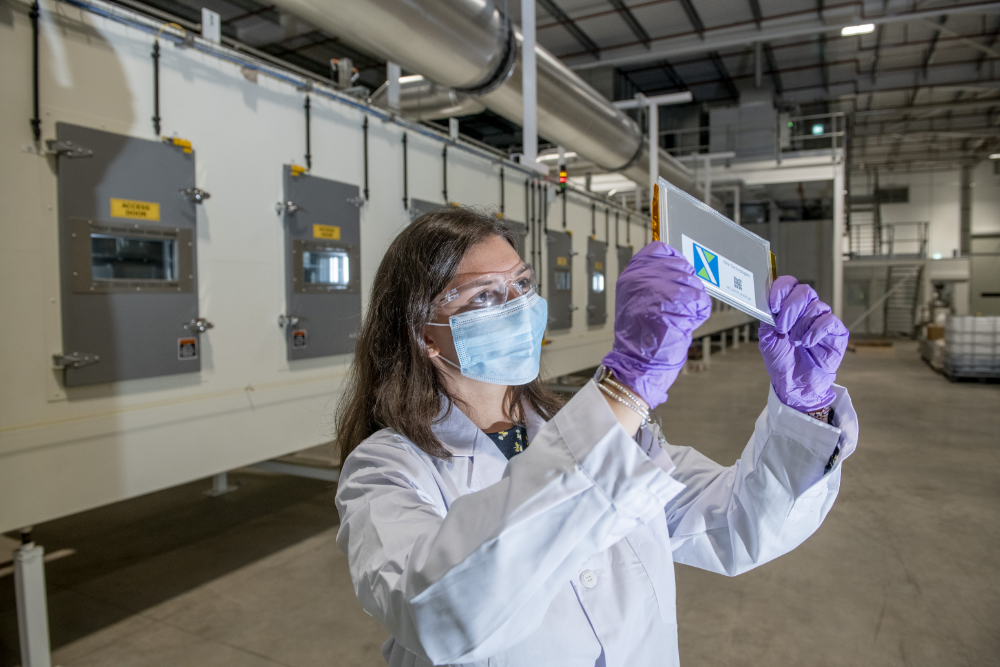Manufacturing Batteries in the UK – It’s all About a UK Supply Chain
Posted on: in Blog
Ilika recently raised an additional £24.7m from its investor base to develop and industrialise solid state pouch cells for EV applications. With this strong investor endorsement we reflect here on the wider picture for battery manufacturing in the UK.
The UK is the world’s 9thlargest manufacturer and the 10thlargest exporter with a total output of £191bn in 2019. But whilst manufacturing worldwide has been hit by the Covid pandemic, in the UK there are additional problems caused by Brexit with further import regulations causing delays. But it’s not all doom and gloom. UK manufacturers are mainly confident in their stability and the future, and agree that successful manufacturing has to set new trends to tackle new problems. Products need to get to market faster than ever before whilst also being more cost effective and all this needs to be done in a way that is climate friendly and with a low carbon footprint. Embracing new technology and innovations is vital in today’s world.

UK Prime Minister Boris Johnson, recently officially opened the £130m UK Battery Industrialisation Centre (UKBIC) which supports UK development of battery technologies for future electrification. Organisations working on batteries for this market can use the UKBIC and Ilika has recently signed a Framework Agreement with them. In his speech at the UKBIC, the Prime Minister talked about the importance of the battery industry to the UK economy and for green innovation and growth. This is endorsed by Innovate UK’s Faraday Institution which believes the UK will need 7 gigafactories to fulfil the requirements of the UK battery sector. The Faraday Battery Challenge fund has so far distributed £330m to further UK electrification via battery developments, with new competitions to be announced in 2022, and higher TRL level funding available via the Advanced Propulsion Centre as well.
However, if these gigafactories are simply assembling pre coated electrolyte rolls delivered from elsewhere in the world, the value-add to the UK economy will be low. Perhaps even more importantly, the way the resulting battery is viewed under the Rules of Origin may not be helpful to UK Automotive OEMs if re-exporting the car. To really improve battery manufacturing, creating a full UK supply chain is key. Manufacturers need to embrace the whole journey of the product – from R&D to chemical supply chain to manufacturing - to add true value to the UK economy and enable re-export of the car classified as a UK origin car.
This was a subject we recently discussed with industry experts Jacqui Murray, Deputy Director UKRI Faraday Battery Challenge and Dr James Frith, Head of Energy Storage at Bloomberg NEF, in our video The Role of Government in Battery Innovation. Presently the world is one big supply chain but that brings problems – cost of transporting goods across the world, the effect this has on the climate, less transparency for the purchaser and potential delays. The ship stranded in the Suez Canal earlier this year was holding up an estimated $9.6bn of trade each day. This was $400m an hour, $6.7m a minute!
Electric vehicles are a push towards a green climate and more sustainability, but if the parts to create those vehicles are creating a lot of emissions with transportation, then electric vehicles don’t really become as ‘green’ as they could be. As Dr Frith said “The push for sustainability goes hand in hand with electric vehicles”.
The UK needs to develop a UK electro-chemistry supply chain if it really wants to get as close to net zero carbon emissions as possible. 70% of the unit cost of an EV pouch cell lies in this electro-chemistry, with often less than 30% in the assembly. By creating a localised supply chain, companies will start working more closely together enabling more innovation and increased manufacturing, driving forward advanced technologies such as fully solid, safe batteries.
Here at Ilika, as we scale up our Goliath technology we are fully aligned to UK Government goals to create a greener and stronger UK manufacturing economy:
- Create a UK EV manufacturing and supply chain hub
- Increase uptake of EV to meet 2030 targets
- Increase private investment in R&D
As the latest recent investment proves, there are a lot of investors who have confidence in this approach as well as in our Goliath technology. If you’re an OEM who wants to be part of the Goliath success story with our Lead Partner Program, contact us now at info@ilika.com
